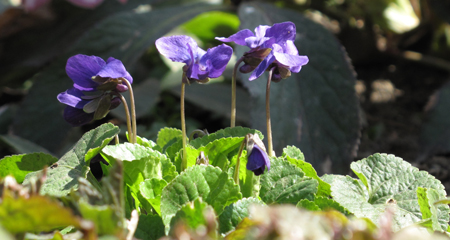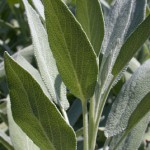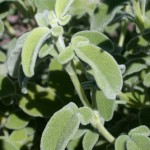Sweet and Low
The sweet-smelling, short-stemmed garden violet (Viola odorata) blooms from late March into April. Prized in medieval pleasure gardens for its color and scent, this violet was also at home in kitchen and physic gardens. Photograph by Corey Eilhardt
Native to woodland margins and damp and shady places throughout Europe, the early blooming Viola odorata was prized for its fragrance as well as its rich purple color. The sweet violet is included in Albertus Magnus’ list of desirable flowers for the pleasure garden, along with the lily and the rose. These three flowers are often linked symbolically as well as horticulturally in medieval sources, as flowers of Paradise and as emblems of the Virgin???the low-growing but beautiful and sweet-scented violet was equated with Mary’s humility. Read more »




